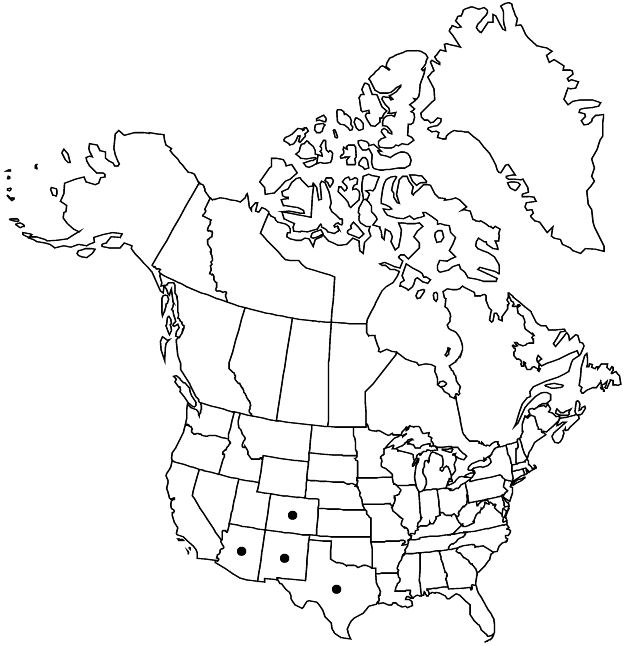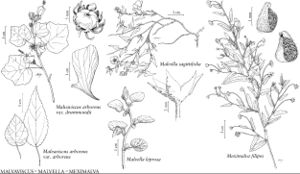Malvella sagittifolia
SouthW. Naturalist 19: 102. 1974.
Stems prostrate, trailing, invested with silvery-white, lepidote scales. Leaves: petiole to 1/3 as long as blade; blade narrowly triangular, 1.5–3.5 cm, usually 3–5 (–6) times as long as wide, base truncate, margins entire with 2–4 hastate teeth at base, apex acute, surfaces with sparse, silvery-lepidote scales. Pedicels long, usually shorter than subtending leaves, involucellar bractlets 0. Flowers: calyx 7–9 mm, silvery-lepidote, lobes cordate-ovate, bases plicate-overlapping, apex acuminate; petals whitish or pale-yellow, sometimes fading rose, asymmetric, 15 mm; stamens pallid, glabrous, staminal column antheriferous at apex; style 7-branched or 8-branched, pallid, glabrous. Schizocarps 5–6 mm diam.
Phenology: Flowering year-round in warmer areas.
Habitat: Heavy, saline soil, mud flats, along lake shores
Elevation: 30–1500 m
Distribution

Ariz., Colo., N.Mex., Tex., Mexico (Chihuahua), Mexico (Coahuila), Mexico (Durango), Mexico (San Luis Potosí), Mexico (Sonora), Mexico (Tamaulipas)
Discussion
Malvella sagittifolia is known from Otero County, Colorado; Dona Ana County, New Mexico; in scattered locations in Texas but primarily in the Big Bend region; and in much of central and southern Arizona. The comparatively long leaves with hastate teeth, the lack of any stellate hairs, and the consistent lack of an involucel distinguishes this species.
Selected References
None.
